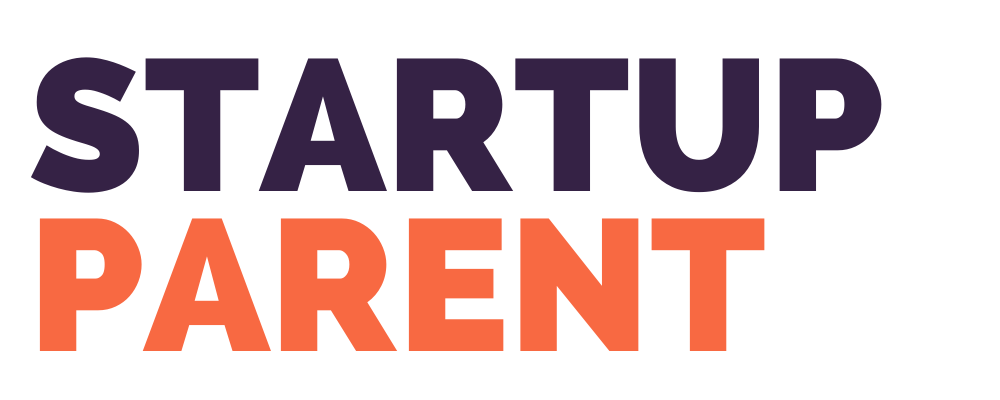Why is so much parenting advice seemingly in direct conflict with others? How do we determine who is correct? How do we make these emotional decisions for ourselves?
Emily Oster, author of the wildly popular “Expecting Better” is back to apply her economist’s data-driven lens to the big questions of early childhood parenting: Should I breastfeed? Will sleep training harm my child? What are the real risks and benefits of vaccinations?
The data she uncovers is surprising. Some running directly counter to popularly held beliefs, others supporting both sides of a firmly entrenched debate. Oster is relatable and judgment free as she tells stories of how her research impacted her own parenting and which information she mosts wishes she’d had access to before giving birth for the first time eight years ago.
In many circumstances, Oster proves that conflicting information from seemingly opposing camps can actually both be correct. If someone tells you to breastfeed and someone else tells you to formula feed, what are you to do with this conflicting information? According to Oster, be informed and empowered by data, then make the best decision for your child, yourself, and your family.
Oster’s goal is not to shock parents with data or make them act counter to their intuition, but rather to help make parents more empowered, comfortable, and confident in their decision making process. Even for her, data only plays a partial role in her decisions. The rest is a careful consideration of what is best for her child, herself, and her family.
On today’s episode, we get to talk with Emily Oster about the big topics of debate in early childhood parenting as well as learn about how she coordinates her family’s schedules, how she interprets her personal work vs. stay at home debate, and what she wishes she knew before giving birth for the first time almost a decade ago.
IN THIS EPISODE WE TALK ABOUT
- Why so many of the conversations around parenting are completely baby-centric and what is missing when we don’t consider parental and familial well-being.
- Emily’s own struggles with breastfeeding and how the data around the benefits of breastfeeding really surprised her.
- The ingenious decision Emily made to implement the task management software at home that she uses at work and how that has changed her and her partner’s communication.
- How to set up an operations manual for your family so that you can travel (for work or pleasure) and someone else can smoothly run your day-to-day family operation.
- Why we can be more confident about the data on sleep training than other areas of parenting. And importantly, why whether you choose to sleep train your baby or not, you are correct.
- How Oster herself chooses to use (and not use) data in her own decision making around her family and children, and how you can implement her three-pronged approach to making your own choices.
- The surprising ways the complex-sounding economic term “decreasing value of marginal utility” is applied to parenting and work.
The Startup Pregnant Podcast Episode #111
Some Quotes From the Episode
- “My daughter didn’t really seem to like [breastfeeding] very much. I interpreted that as her not liking me very much.”
- “I had had this idea that you see people, they’re out to brunch and they’re having brunch and their baby is just happily nursing. I thought, I would be that person. Instead, I was the person who was baby was screaming hysterically, while I was trying to wrestle my boob out of my shirt… I mean, I’m sweating telling you about it.”
- “I remember coming home and having the car seat and putting it down and being like, ‘Oh, my God. It’s going to wake up. What are we going to do with it when it gets up?’”
- “I think in some ways, it’s a little reassuring for people who are struggling with breastfeeding, or for whom it doesn’t seem like the right choice that these claims that are so grandiose are I think overstated based on what we really know from actual evidence.”
- “I think in general with almost all decisions in parenting, we spend so much time talking about what’s good for the baby? What’s good for the baby? What’s good for the baby? Without stepping back and saying, ‘We also need to think about what’s good for the family.’ Different families are going to have different preferences, different things that work for them.”
- “It doesn’t mean you have to sleep-train your kid. It is not going to be for everyone and kids are different and parents are different. If this is something that you want to do, the data is supportive that it is not going to damage your baby. That’s a long answer to sleep training is cool if you want to do it.”
- “Rather than saying, ‘Trust me, I’m an expert. I read all this stuff.’ I actually try to help people understand a little bit about what is the data that we can use to look at these questions. What is the limitation of that data and why are some of these anecdotal reports that people like to use? Why are those not so reliable as a way to learn about the impacts of vaccines?”
- “Recently, a study just came out from Denmark with I think 700,000 kids, which looked at the links between autism and vaccines and find no impact. If anything, kids who were vaccinated are a bit less likely to have autism.”
- “To really step back and try to be objective about the trade-offs that you’re going to face. Then you can bring whatever data there is to it. Sometimes the data will be helpful and sometimes it will be less helpful. I think that by really structuring your decision, often you can get a lot of the way there. You can say, ‘Well, actually it turns out my preferences are really important.’”
LEARN MORE ABOUT EMILY OSTER
Emily Oster is a highly-respected economist and professor at Brown University. Her research interests range from development and health economics to research design and experimental methodology. Emily’s work has appeared in the Wall Street Journal, the bestseller SuperFreakonomics, and FiveThirtyEight, among many other publications, and she is the author of Cribsheet: A Data Driven Guide to Better, More Relaxed Parenting from Birth to Preschool and Expecting Better: Why Conventional Pregnancy Wisdom is Wrong—and What You Really Need to Know.
RESOURCES MENTIONED IN THIS EPISODE
- Expecting Better: Why Conventional Pregnancy Wisdom is Wrong—and What You Really Need to Know by Emily Oster
- Cribsheet: A Data-Driven Guide to Better, More Relaxed Parenting, from Birth to Preschool by Emily Oster
EPISODE SPONSOR & SPECIAL OFFER
We have a series of mini-books we wrote just for Startup Pregnant listeners: from Pregnancy Affirmations to the Pregnancy Reading List and the Parenting Reading List, check out all of our Startup Pregnant mini-books at www.startuppregnant.com/minibooks. If you’re on our email list, you can get a free copy of one of the books with our secret codes just for email subscribers!
THE STARTUP PREGNANT PODCAST & HOST
- Sign up for the Weekly Startup Pregnant Newsletter with insights, strategies, and new ideas for working parents.
- Email us at hello@startuppregnant.com and tell us what you think!
- Find us on Facebook, Instagram and Twitter
- Want to sponsor the podcast? We’ve got great sponsors and only one shout-out per episode. We don’t shove tons of ads into our podcast. We only work with awesome.
- Still here? Definitely leave us a review on iTunes. It’s really helpful for the show!

